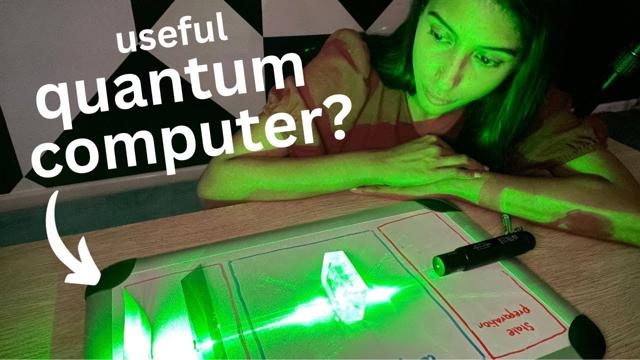Is It Possible to Achieve Quantum Computing at Home?
Exploring the Possibilities of Quantum Computing at Home

Frequently Asked Questions
Currently, building a quantum computer at home is not feasible due to the complex technology, expensive components, and specific environmental needs for qubits. However, accessing quantum computing resources via cloud platforms is possible.
Platforms like IBM Quantum Experience, Google Quantum AI, and Microsoft's Quantum Development Kit provide cloud-based access to quantum processors, allowing you to run experiments and develop quantum algorithms online.
Step by Step Guide
1
Understanding Quantum Computing Basics
Before diving into practical aspects, familiarize yourself with the principles of quantum mechanics. Quantum computing uses quantum bits, or qubits, which can represent and store information in states of 0, 1, or both simultaneously due to a principle called superposition.
2
Research Available Quantum Computing Platforms
Several platforms, like IBM's Quantum Experience or Google Quantum AI, provide access to quantum computers via the cloud. Explore these platforms to understand how you can submit quantum algorithms and experiments remotely.
3
Learn Quantum Programming Languages
Familiarize yourself with quantum programming languages such as Qiskit, Cirq, or Q#. These languages allow you to write code for quantum algorithms. Start with simple tutorials available online to grasp the syntax and functionality.
4
Set Up Your Home Workstation
While you won’t have a physical quantum computer at home, set up a robust computing environment. Ensure you have a good laptop or desktop, a reliable internet connection, and the necessary software libraries installed to run quantum programming simulations.
5
Experiment with Quantum Simulators
While direct access to quantum hardware may be limited, simulators allow you to experiment with quantum algorithms. These tools mimic the behavior of qubits and enable you to test your code without the need for actual quantum hardware.
6
Join Online Courses and Communities
Engage with online courses, webinars, and communities focusing on quantum computing. Websites like Coursera and edX offer courses that introduce quantum concepts. Additionally, platforms like Stack Overflow or Reddit have active discussions where you can learn from others.
7
Work on Projects
To deepen your understanding, create small projects. For example, implement simple quantum algorithms like quantum teleportation or Grover's search algorithm. These projects reinforce theoretical knowledge and provide practical experience with coding.
8
Stay Updated with Research and Developments
Quantum computing is an evolving field. Follow recent studies, breakthroughs, and advancements. Journals and blogs on quantum computing will keep you informed about the latest technologies and theoretical advancements.
9
Network with Professionals
Join forums, attend conferences or local meetups where quantum computing topics are discussed. Networking enhances learning and can potentially open up collaborative opportunities in projects.
10
Consider Hardware Options for Future
Though it’s not realistic for most to build quantum computers at home today, keep an eye on advancements toward quantum hardware development that may eventually become more accessible to enthusiasts and researchers alike.








